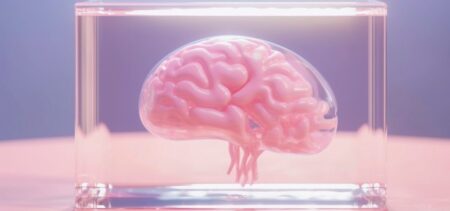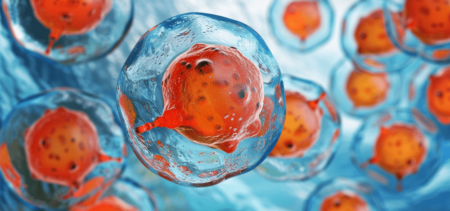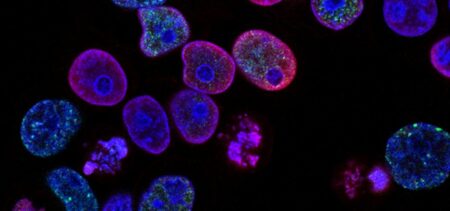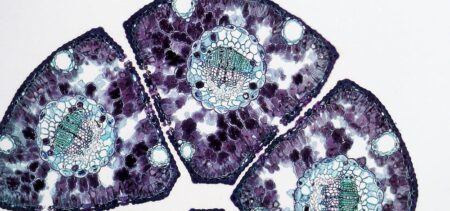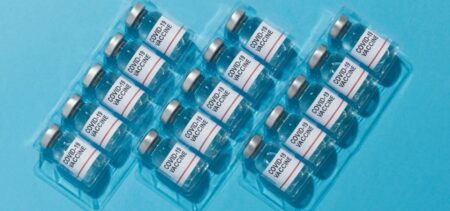While the COVID-19 pandemic wreaked havoc and forced scientists and policymakers to create or search for vaccines and treatments, common disorders continued to affect millions of human lives. The pandemic made it harder for people suffering from chronic conditions to receive proper treatment in optimal time. Moreover, COVID-19 was also shown to aggravate or even cause other conditions—including serious brain disorders like dementia, encephalitis, and intracranial hemorrhage.
In fact, new research shows that 1 in 3 COVID-19 survivors subsequently develop mental health or neurological conditions within 6 months after infection. Although more scientific data is needed to determine the causal link between COVID-19 and brain disorders, one thing remains certain: Patients suffering from mental and brain conditions need better, more effective medication to help them overcome these conditions. The good news is that numerous biopharmaceutical companies are already working on developing new drugs, and many new treatments could soon become available for patients with brain disorders.
Treating Depression, Anxiety and Brain Injuries
According to a study, a recently developed treatment has successfully altered neurobehavior in mice, lowering anxiety-like behavior. This new treatment, involving Cdk5 inhibitors, could be extremely useful in the near future—not only in alleviating symptoms of stress, anxiety and depression, but also in treating addictions, cancers, and even neurodegeneration, according to James Bibb (Ph.D.) and his team. Bibb, a professor at the University of Alabama at Birmingham (UAB), said the new drug offers scientists the rare opportunity to study the function of Cdk5—a regulator of neuronal signal transduction.
“Cdk5 activity is implicated in various neuropsychiatric and neurodegenerative conditions such as stress, anxiety, depression, addiction, Alzheimer’s disease, and Parkinson’s disease,” the scientists wrote, showing that by administering the new Cdk5 inhibitor to mice, the animals displayed increased resistance to stress, enhanced cognition, neuroprotection from transient ischemic attacks and head trauma, and even ameliorated neurodegeneration. According to this clinical study, the new Cdk5 inhibitor, known as 25–106, could be used in developing new effective treatments for numerous neurological and neuropsychiatric conditions.
Alzheimer’s Drug Shows Promising Results
Unlike 25–106, an experimental Alzheimer’s treatment is already showing promising results in treating patients suffering from early symptoms of the disease. BAN2401, a drug developed by Eisai and Biogen, was initially considered to be a failure during Phase 2 of its clinical trial. Several months after this assessment was made, however, the highest tested dose of the drug managed to slow cognitive decline in patients suffering from the disease known to destroy both memory and thinking skills. While these new results were labeled as promising, information about the new drug is still scarce—preventing independent scientists from making any estimate of the drug’s ultimate efficacy.
Phase 3 of the clinical trial is expected to shed some light on the real effects of 25–106, and determine if the drug can provide hope for patients in the early stages of Alzheimer’s disease. This is especially important considering the fact that companies such as Merck & Co., Eli Lilly, Johnson & Johnson, and even Eisai and Biogen, have already ended late-stage trials of similar drugs. Even though there is still a long way to go before one of these drugs can actually be used to treat the condition, BAN2401 provides biopharmaceutical companies and scientists a silver lining.
Developing a New Antipsychotic for Schizophrenia
Another new drug considered extremely promising is KarXT—an antipsychotic that could effectively treat Schizophrenia. Steve Paul, M.D., chief executive officer, and president of Karuna Therapeutics—the company that developed this new drug—said he is proud of the accomplishments made by his company in advancing KarXT into six Phase 3 clinical trials. “KarXT has the potential to offer a new, potentially transformative therapy for people living with serious mental illness,” he added, while announcing that Phase 3 of the trial is already on track for the second quarter of 2022.
It’s important to note that KarXT is a new type of treatment—an oral investigational antipsychotic that relies on a new type of action mediated via muscarinic cholinergic receptors. Moreover, not only could this new drug prove to be useful in treating schizophrenia, but it could also be effective in treating psychosis as a symptom of Alzheimer’s disease. While 25–106 has only been tested on mice, and the promising results of BAN2401 are controversial for the time being, KarXT provides new hope for patients suffering from serious brain disorders, such as schizophrenia and psychosis.


